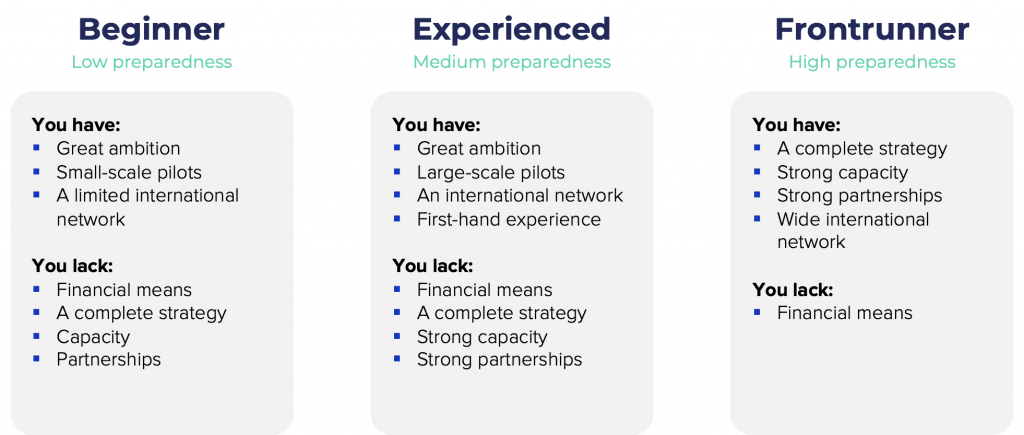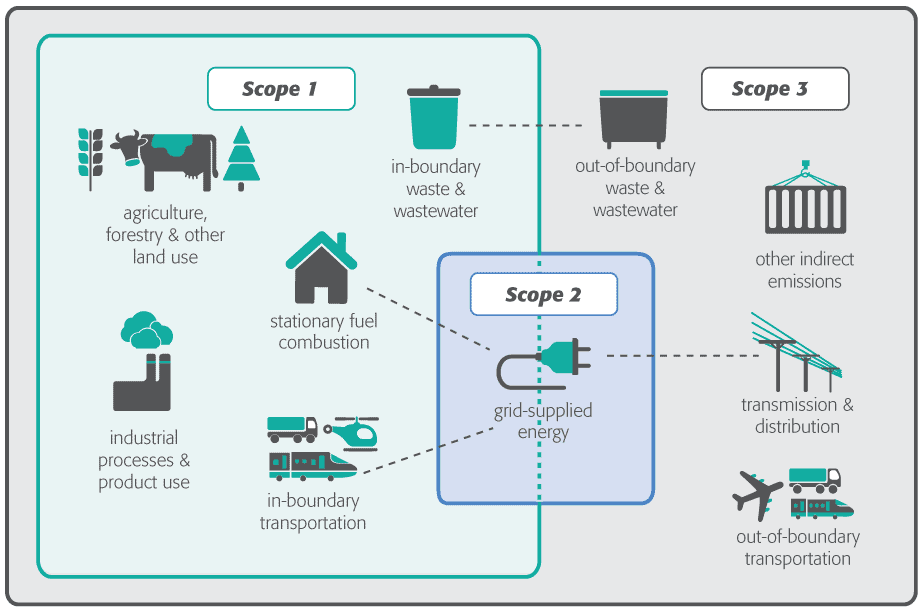100 Climate-neutral Cities by 2030 – by and for the Citizens
Horizon Europe adopts five mission areas as part of its commitment to solving some of the largest challenges facing our world. Under these areas, five missions are proposed that will further the goals of the European Green Deal, Europe’s Beating Cancer Plan, and the Sustainable Development Goals. Under the Climate-neutral and smart cities mission area, the proposed mission is called ‘100 Climate-neutral Cities by 2030 – by and for the Citizens’. In this post we lay-out the background and aims of this mission.

Although cities only take up about 3% of all land on Earth (which translates to 0.87% of the Earth’s entire surface), they produce 72% of all global greenhouse gas (GHG) emissions. In addition, cities are growing fast and, without any intervention, emissions are expected to grow exponentially. What if we made use of these dense urban areas and their infrastructure, where emission is highest, and exploit their enormous potential for cross-sectoral integration to build a green future? By the systemic transformation of European cities, we can actively take action on the global climate emergency and improve the health and wellbeing of Earth’s citizens.
With the Mission ‘100 Climate-neutral Cities by 2030’, the European Commission aims to exploit the cities’ access to capital, know-hows, and economies of scale for the development to pilot and scale up green innovations. 100 European cities will be selected and supported in their transformation towards complete climate neutrality by 2030. Here, green initiatives can be piloted and these cities will function as an innovation hub and showcase for the rest of Europe to follow and become climate neutral by 2050.
City Contracts
For the execution of the mission, 100 selected European cities will sign a so-called Climate City Contract (from hereon named: the Contract). The Contract will be co-created by the city government, (preferable) involved city stakeholders, the EC, and national authorities. The purpose of this politically binding document is to identify the responsibilities of all stakeholders, set out the strategy to becoming climate neutral, and create a platform for multi-level negotiations and initiatives, all personalized for each of the participating cities.
A prominent part of the Contract should cover the 5 transformation drivers:
- New forms of participatory and innovative governance
- A new economic and funding model
- Integrated urban planning
- Digital technologies
- Innovation management
By and for citizens
Communities have a significant impact in driving change and citizens have indicated that they want to take an active role in shaping the future. To effectuate a systemic transformation, a new city governance model will need to be established, involving all city stakeholders not limited to traditional governance systems: political actors, users, producers, consumers or owners of buildings and transport means. The Contract will give the community an active role as co-designers, co-creators, and co-implementors. It states that at least 1% of EU funding within the framework of the Contract should be allocated towards the support of citizen initiatives, with freedom to experiment.
Innovation Promotion
Through developing 100 ‘Green Cities’ Europe will position themselves as the leader of the urban transition towards climate neutrality. Not only will this significantly impact the climate, it is also expected to create new investment opportunities, jobs, and consequently, economic growth.
Diffusion of technology is a crucial aspect of the transition, and innovation will be supported and promoted. Today, only ~12% of city big data is exploited for decision making and city governance. The EC aims to use and boost the potential of ICT to transform the way products are designed, manufactured, used and recycled. Using a high-quality connectivity infrastructure, a new open digital environment can be created to perform climate impact modeling, and empower and involve end users.
Within the framework of the Mission, the transformation will concentrate on energy efficiency to reach zero emissions. Specific sectors that should be focused on are: renewable energy, reduction of emissions through commute and travel, and optimizing the processing of waste. New technologies within testbeds, urban living labs, upgrades in existing residential areas, and the construction of new city districts, can be explored using the 100 cities within the City Contracts as testing grounds.
Selection of the Green CIties
To apply for this Mission, a city should have a size of 50.000+ citizens. For smaller countries, the application threshold will be 10.000 citizens. The selection of the (at least) 100 cities that will take part in the ‘Green Cities’ Mission, will be a transparent process, and to ensure geographical dispersion, at least one city from all European Member States will be selected to become one of the cities that will strive for climate neutrality by 2030. The entire process consists out of 4 distinct phases:
- An open call: The city authority expresses interest and performs a self-assessment to determine their preparedness level (beginner, experienced or frontrunner level).
- Mission application: co-creating of the application with citizens, local authorities and relevant city stakeholders.
- Climate City Contract: The development of a complete city contract with aforementioned elements.
- Implementation of the Contract: Cities will implement the entire Contract with support provided by several sources.

Monitoring
The EIC has laid out a transparent monitoring process to evaluate the participating cities’ transformation towards carbon neutrality. There will be a biannual assessment on key indicators within different scopes, e.g. decrease in energy consumption, GHG emission, green space growth, and citizen engagement. Not only GHG emission from buildings, industry, transport, waste processing, electricity production and agriculture within the participating City will be taken into account, but GHG emitted in another region – with the goal of supplying the participating city with grid electricity, transport, and waste processing – will also be regarded.

To activate and stimulate the whole of Europe to become carbon neutral by 2050, the EC has proposed the ‘100 Climate-neutral Cities’ mission. 100 cities from all over Europe will be selected to participate in the Mission and become carbon neutral in 2030. These cities will function as innovation hubs to explore ‘green’ technology and initiatives to reduce GHG emissions and set a global example.
Read more about the Mission Area: Climate-neutral and smart cities
Visit the EC page about this mission



